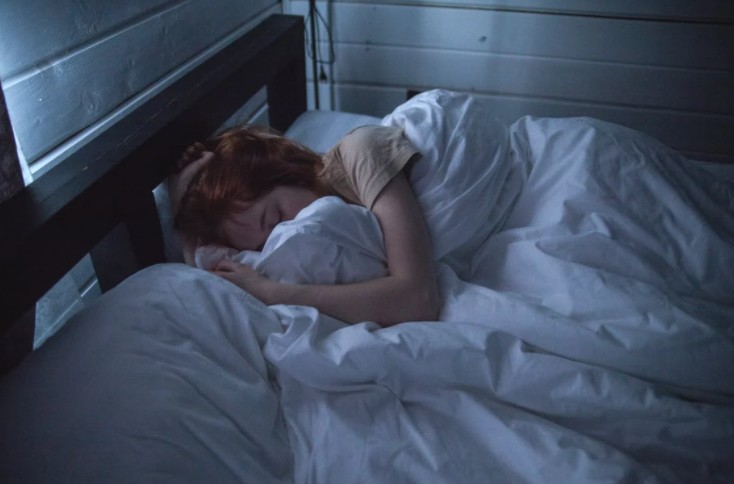Memory lapses and lack of concentration can result from poor sleep habits. Lack of sleep can make controlling your emotions and thinking clearly difficult. Insufficient sleep can negatively impact your performance at school and work and damage your relationships with others.
If you are not getting enough sleep, you are in good company. It is estimated that around 33 percent of people worldwide have trouble with insomnia. According to the CDC, one in three adults says they get less than the recommended amount of sleep each night.
Unfortunately, many see sleep as a luxury. When you sleep, your body is repairing itself on a cellular level. Without sufficient sleep, you cannot accomplish what you want physically, mentally, or emotionally.
Once lost, sleep is difficult to catch up on. Just one week of getting less than six hours of sleep per night will leave you with a sleep deficit equal to one full night’s sleep. It is impossible to make up for that by taking a catnap on the weekend.
Sleep Is Essential for Good Mental Health
You know that when you don’t sleep well, you get cranky. But the mental health effects of sleep deprivation go well beyond temporarily feeling ornery. Sleep deprivation has been linked to mental health conditions, including:
- Anxiety
- Depression
- Bipolar Disorder
Not getting enough sleep can result from and be the catalyst for psychiatric conditions. If you don’t get enough sleep, psychological conditions can be triggered. However, psychological conditions can trigger insomnia, which creates a negative circular relationship between how you sleep and your mental state. Therefore, if you find it hard to get to sleep and stay asleep, talk to your doctor.
A good first step on the road to better sleep is by taking note of the things in your bedroom that may negatively affect how you sleep. Here are couple things to consider:
- Are you watching TV or looking at a device before bed? Blue light affects the circadian cycle to go haywire. The body thinks it’s still light outside making it difficult to fall asleep. Make sure you give yourself at least 30 minutes of no devices before going to bed. Removing your TV from the bedroom is a good way to avoid this issue.
- Is your mattress right for you? Many people sleep on mattresses that cause soreness in their lower back and neck. Find a mattress that is comfortable while supporting your body. Mattress in a box companies offer 90-120 day return policies so you can try a mattress out to make sure it’s the right one for your needs.
Sleep Deprivation and Stress
The insomnia stress relationship is circular. If you don’t get enough sleep, it makes it hard to get through the day. Difficulty concentrating and focusing on simple tasks creates stress that accumulates throughout the day.
Not getting enough sleep leads to mood changes, irritability, and anger. Minor stresses in life become exaggerated and difficult to bear. You feel frazzled, short-tempered, and frustrated. These feelings make it hard for you to go to sleep at night, which starts the process over again.
Sleep Deprivation and Reduced Thought Processing
You know that if you don’t get enough sleep, you are not alert and can’t think quickly. Scientists have measured the link between sleep deprivation and concentration. When you don’t get enough sleep, you can’t pay attention, so it’s easier for you to get confused. Simple tasks that require logical reasoning or higher-level thought become difficult.
When you are sleepy, your judgment is impaired. You lack the ability to evaluate situations and choose the right behavior for the situation. In essence, being sleepy causes you to lose situational awareness.
Sleep Deprivation and Depression
If you have problems sleeping, it could be a symptom of depression. Researchers are learning that not getting enough sleep could also cause depression. They believe that addressing insomnia early on may be an effective way to lower the risk of depression. Still, more studies are needed.
Researchers conducted a study with over 3,700 participants to determine the link between poor sleep and the symptoms of depression, paranoia, and anxiety. Some participants received cognitive-behavioral therapy for their insomnia, and others received no treatment.
Those who received cognitive-behavioral therapy had a reduction in anxiety, depression, paranoia, and nightmares. Their overall well-being improved. They saw an improvement in their ability to function in the work and home environments.
Dealing with Poor Sleep
Whether or not you have a psychiatric condition, you can cope with poor sleep or disrupted sleep by making lifestyle changes designed to help you get a better night’s sleep. Stay away from things like alcohol, nicotine, and caffeine. These can interrupt your sleep. Practice good sleep habits, including sleeping in a dark and cool room, establishing a routine, and turning off your devices before you go to sleep.
If your sleep problems are causing or exacerbating mental health conditions, talk to a mental health professional. If you are able to address sleep problems on your own, you may notice a positive impact on your mental health symptoms.

